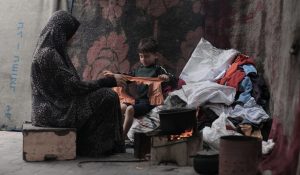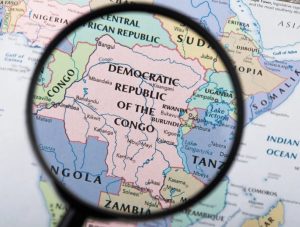By: Prof. William A. Schabas, OC MRIA
September 16, 2025: On 16 September 2025, the UN Commission of Inquiry for the Occupied Palestine Territory issued its most expansive, and its most damning, report. In more than 70 densely documented pages it has reviewed the elements of the crime of genocide in accordance with the 1948 Convention. The report is a blueprint for the International Court of Justice whose judgment in the South Africa v. Israel case is still years away.
The conclusions in the report call for Israel to cease fire immediately, to restore humanitarian access to Gaza, and to investigate and punish the crime of genocide including its incitement, messages that will certainly be dismissed by Israel’s as yet another manifestation of antisemitism. But the Commission also calls upon other States to employ all reasonable means to stop genocide in Gaza, including that they cease the transfer of arms and other equipment or items, including jet fuel, to the State of Israel, and that they ensure that individuals and corporations in their territories do not contribute to Israel’s crimes. The Commission recommends that the Prosecutor of the International Criminal Court prosecute the charge of genocide.
The three-member Commission is chaired by Navi Pillay. Nobody on the planet could have better credentials for this position. Pillay was a judge in the first international genocide case, Prosecutor v. Akeyesu, at the International Criminal Tribunal for Rwanda. Later, she served as a judge at the International Criminal Court and as United Nations High Commissioner for Human Rights. She is currently an ad hoc judge in the Gambia v. Myanmar case at the International Court of Justice. The other two commissioners, Miloon Kothari of India and Chris Sidoti of Australia, have decades of experience as human rights experts within the United Nations system.
The Commission is not a Court. Its evidentiary standard, of ‘reasonable grounds to conclude’, is lower than that of the International Court of Justice and the International Criminal Court. Nevertheless, the rigour of the analysis in the report is extremely compelling. The fact that it meets the reasonable grounds standard does not mean that the evidence on which it relies is not very strong and capable of sustaining findings where the evidentiary requirements are much higher. Indeed, the report states that ‘the Commission finds that statements made by Israeli authorities are direct evidence of genocidal intent’ that are ‘fully conclusive’.
In their intervention in the Gambia v. Myanmar case, several Western States – Canada, Denmark, France, Germany, the Netherlands and the United Kingdom – alluded to the findings of the Commission of Inquiry for Myanmar, on which Chris Sidoti also served. That Commission said genocide was committed by Myanmar. The six Western States, eager to support the charge against Myanmar, told the International Court of Justice that ‘reports generated by the United Nations, such as reports produced by fact finding missions, commissions of inquiry, and reports that the Secretary-General of the United Nations may prepare for the United Nations Security Council or General Assembly, can have special importance. Indeed, such reports can be particularly credible because they emanate from a “disinterested witness”, namely “one who is not a party to the proceedings and stands to gain or lose nothing from its outcome”.’
The six Western States, all of them known not only for essentially uncritical support of Israel but also their material support to its brutal attack on the Palestinians, can hardly repudiate what they said in Gambia v. Myanmar. No such intellectual integrity is to be expected from Netanyahu or Trump, of course. But those who have already staked out their respect for such Commissions of Inquiry are now stuck in a corner, and it is one with serious legal consequences. They are well aware that the International Court of Justice, in its 2007 judgment in Bosnia v. Serbia, required States to take action to prevent genocide once they become aware that there is a ‘serious risk’ it is being committed. Several of them said as much in interventions in the Ukraine v. Russia genocide case. It is hard for them to contend that the Commission of Inquiry report does not confirm the existence of such a ‘serious risk’.
Canada, Germany, France, the United Kingdom and the others are familiar enough with double standards, where they say one thing in a certain context but deny it in another. Probably they were confident they could continue in this familiar diplomatic mode when they intervened to condemn Myanmar in 2023, before they understood that the same logic would also damn their little friend in the Middle East. But while it may be acceptable to speak with a forked tongue in a political environment like the General Assembly or the Human Rights Council, it is harder to do this in a court of law. The publication of this report provides them with the opportunity to recalibrate their positions, to break with the Netanyahu-Axis, and to affirm a principled commitment to human rights including the right of all peoples to self-determination.
The Commission of Inquiry’s 16 September 2025 report is an enormous contribution. It builds upon the work of the Special Rapporteur, Francesca Albanese, and of the Israeli and international NGOs, and of public intellectuals like Omer Bartov. It brings the case against Israel for genocide to a new level. Many observers, even in Israel, have criticized its conduct but stopped short of recognizing this as genocidal, in some cases understandable pained by the terrible irony that some of those with a claim to be genocide’s historic victims have been transformed into its perpetrators. The Commission of Inquiry report challenges them to take the next step and recognize Israel’s attack on the Palestinian people for what it is, the ‘crime of crimes’.
In keeping with the objectives of the Zoryan Institute and its subsidiary, the International Institute for Genocide and Human Rights Studies, Scholar’s Corner is an online platform that aims to provide timely analysis of contemporary and ongoing issues relating to genocide, human rights, crimes against humanity, and related mass atrocities from genocide scholars and practitioners.
The views expressed in this article are solely those of the author and do not necessarily reflect the views of the Institute.





